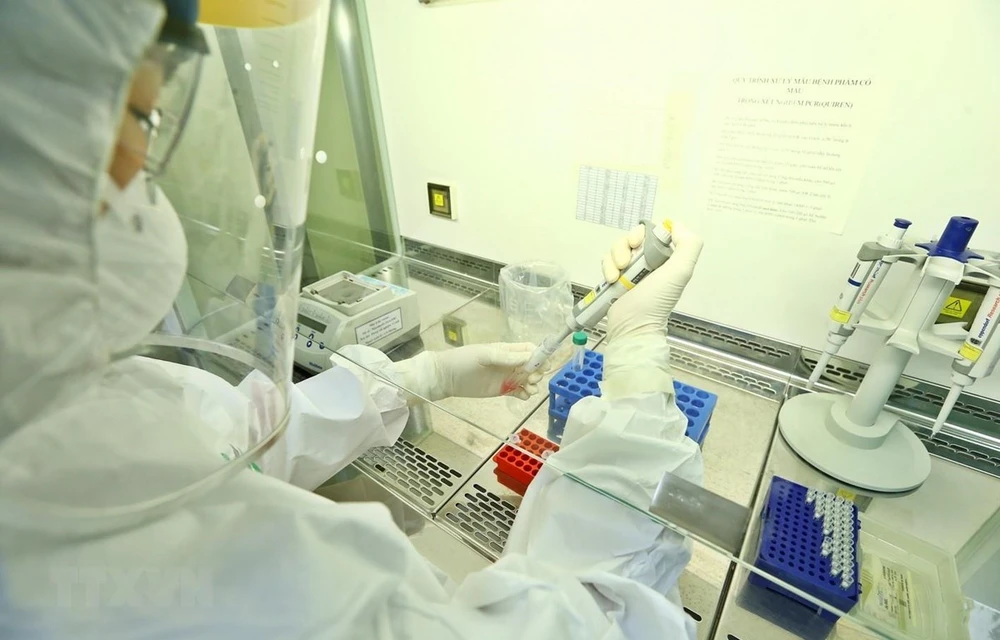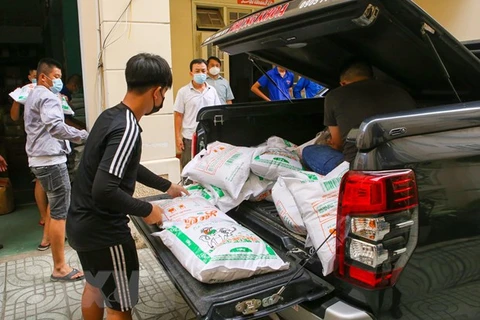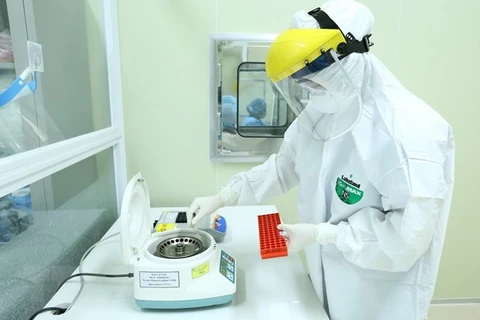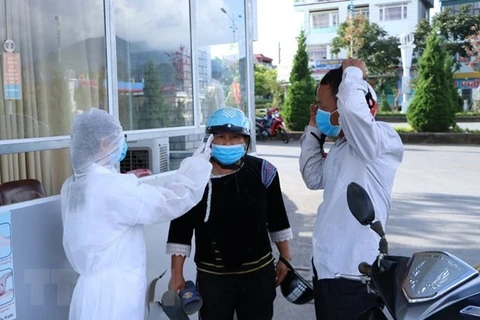
Hanoi (VNA) – The Da Nang Centre for Disease Control on August 28 reported the first re-positive cases of COVID-19 in this central city after that patient had recovered and been discharged from hospital.
Earlier, some localities like HCM City, Bac Giang province, and Hanoi had recorded several cases re-positive for the coronavirus SARS-CoV-2 that causes COVID-19 after being given the all-clear.
No live virus after viral culture
Talking about this issue, Director of the HCM City Pasteur Institute Assoc. Prof. Phan Trong Lan said many cases re-positive, mostly “weak” positive, have been recorded in the world, including Vietnam, after they left hospitals.
In the world, the possibility of SARS-CoV-2 reinfection has been reported in three patients after four to six months since their hospital discharge, and these cases still need more monitoring before confirmations can be made.
He said there hasn’t been evidence of virus transmission from recovered patients with re-positive throat swabs. Besides, all people having close contact with those cases have tested negative for the virus.
Lan noted that virus isolation conducted by the Ho Chi Minh City Pasteur Institute shows that “weak” positive COVID-19 samples did not contain live virus after viral culture, meaning no transmission or very low capability of transmission, which is critical to epidemiology investigation, contact tracing, and affected area zoning.
If necessary, virus isolation, decoding of genome sequences, and serologic tests should be considered to support the analysis of test results and assessment of disease developments.
Professionals have yet to gain sufficient understanding of COVID-19, especially its mutations, the expert said, adding that to get rid of the pathogens in the community, each re-positive patient now should be considered a new infection case so that appropriate response measures can be applied.
Ensuring absolute safety
At a meeting of the Government’s permanent members on COVID-19 prevention and control on August 27, Acting Minister of Health Prof. Nguyen Thanh Long cited results of studies by Vietnam and other countries as showing that there haven’t been any re-positive cases capable of causing virus transmission in the community.
Researchers believe that the re-positive status is the result of leftover genetic elements of dead virus, he noted.
The official said with utmost vigilance, the Ministry of Health has ordered establishments specialised in COVID-19 treatment declare a recovery from the disease only after that patient tests negative at least thrice.
It still requests medical establishments to keep monitoring recovered patients for a certain period of time and the patients to have their health monitored for another 14 days after leaving hospitals so as to ensure absolute safety, Long added.
Also on August 27, at an online meeting with central hospitals and provincial-level health departments nationwide, the acting minister cited health experts’ prediction that Vietnam is likely to record new cases of COVID-19 community transmission as pathogens have spread, which can lead to a new outbreak if people lack of vigilance.
As the pandemic’s developments remain complicated around the world, Vietnam is facing risks from both inside and outside, requiring more drastic and long-term efforts, he said.
Analysing the current COVID-19 situation in Vietnam, Long said if drastic and swift actions are not taken, SARS-CoV-2, the virus that causes COVID-19, will spread faster than authorities’ response. Therefore, affected areas must be swiftly sealed off, those with close contact with confirmed cases traced quickly, and quarantine carried out thoroughly to eradicate the pathogens in the community as fast as possible.
Besides, the health sector needs to persist in quarantining those who directly contact with index cases (called F1) so as to prevent transmission, and localities must also carry out this seriously, he added.
According to the official, Vietnam has so far been proactive and active in preventing and containing the coronavirus disease. Thanks to substantial efforts by both central and local authorities, the latest outbreak has been basically brought under control in some clusters like Hai Duong, Quang Nam, and Da Nang.
The fight against COVID-19 will be more difficult for the health sector this time as the country has to concurrently curb the pandemic and develop its economy, so the sector has to double or even triple efforts in the COVID-19 combat, Acting Minister Long noted./.

























